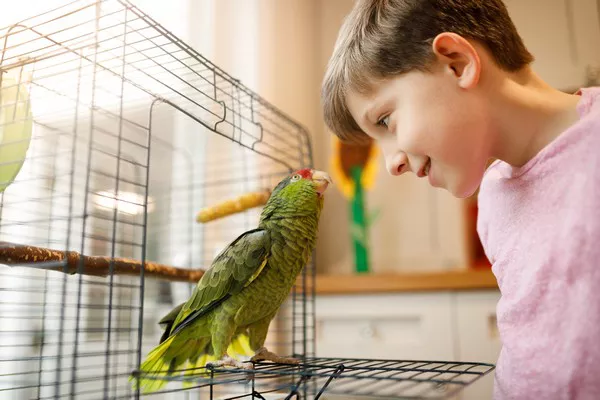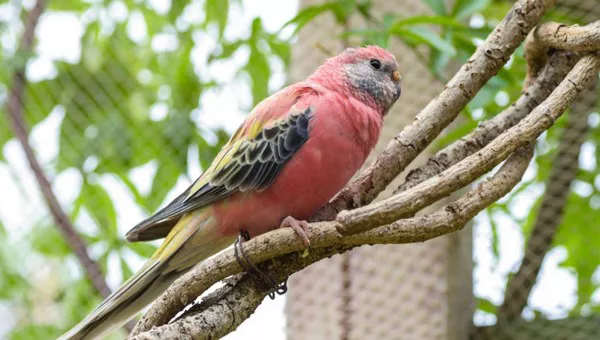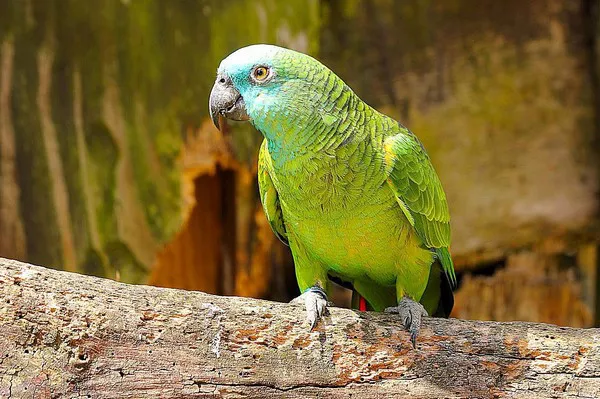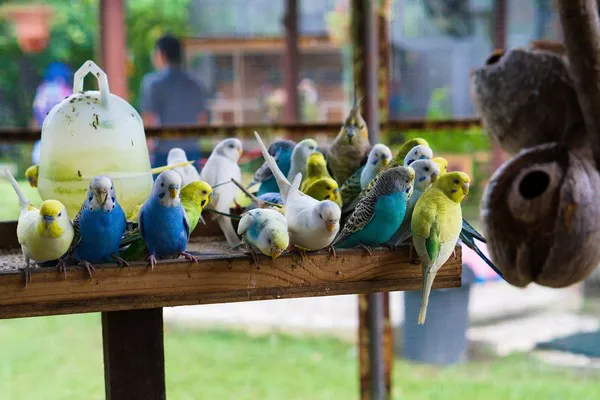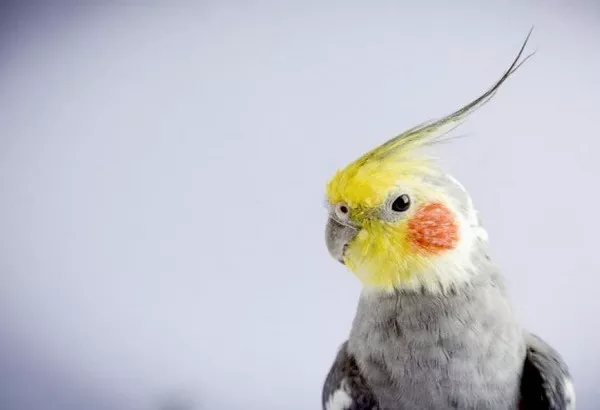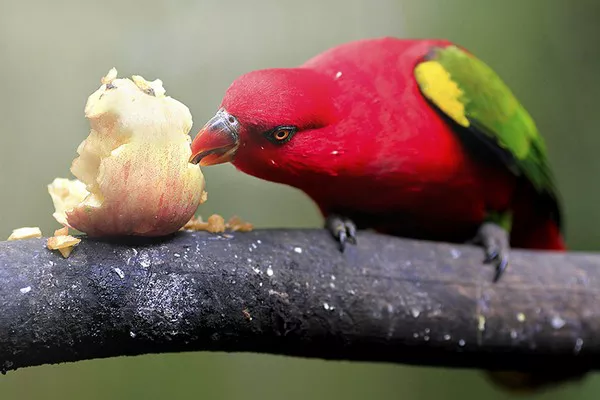Sun Conures (Aratinga solstitialis) are vibrant, social birds known for their beautiful plumage and playful personalities. Native to the northeastern part of South America, they have become a popular pet for bird lovers around the world. With their bright yellow and orange feathers and their cheeky, affectionate nature, it’s easy to see why these birds are a favorite among parrot enthusiasts. However, potential pet owners often wonder: Are Sun Conures difficult to care for?
In this article, we will explore the characteristics, needs, and behaviors of Sun Conures to help you understand whether this colorful bird is the right companion for you. We will also look at the challenges involved in caring for a Sun Conure and offer advice on how to provide the best care for these magnificent creatures.
Understanding Sun Conures
Appearance and Personality
Sun Conures are medium-sized parrots, typically measuring between 12 to 14 inches in length. They are renowned for their stunning plumage, which consists of shades of yellow, orange, red, and green. Their colorful appearance is complemented by their outgoing and affectionate personality, making them a joy to have as a pet.
These birds are very social, often forming strong bonds with their human caretakers. Sun Conures are highly intelligent and curious creatures, which can make them both entertaining and sometimes mischievous. They love interacting with their environment, which includes playing with toys, climbing, and learning new tricks. Because of their social nature, they require a lot of attention and stimulation to remain happy and healthy.
Diet and Nutrition
A balanced diet is essential for a Sun Conure’s health. In the wild, their diet consists of fruits, nuts, seeds, and vegetation. As a pet, you should provide them with a variety of foods to mimic their natural diet. This includes a high-quality pellet formulated for parrots, fresh fruits and vegetables, and the occasional nut or seed.
Sun Conures are prone to obesity if their diet is not carefully monitored, so it’s important to avoid overfeeding them on high-fat foods. Fresh vegetables such as spinach, broccoli, carrots, and peas are excellent choices, while fruits like apples, berries, and grapes should be offered in moderation due to their sugar content. It’s also a good idea to avoid giving them avocado, chocolate, or caffeine, as these are toxic to birds.
Housing Needs
Sun Conures need an environment that allows them to be active, as they are very playful by nature. A large, well-constructed cage is essential to provide them with enough room to move around and stretch their wings. A cage size of at least 24 x 24 x 36 inches is recommended for a single Sun Conure, but larger is always better if you have the space.
The cage should include a variety of perches of different sizes and materials to help with foot health and to give the bird options for comfortable resting places. You should also include toys such as ladders, swings, and foraging opportunities to encourage mental stimulation. Conures enjoy chewing, so providing wooden toys or safe chewable items is important to satisfy this instinct.
When letting your Sun Conure out of its cage, it’s vital to ensure that the room is bird-safe, meaning there are no open windows, toxic plants, or harmful electrical cords. You also need to supervise them closely, as Sun Conures can get into trouble by chewing on things they shouldn’t or exploring areas that could be dangerous.
Exercise and Enrichment
Sun Conures are active birds and need plenty of exercise to stay fit. They enjoy flying, climbing, and playing, so a safe, open space for them to explore is crucial. Having a large play area or a bird-safe room can help them expend their energy and prevent boredom. Providing toys that challenge their minds, such as puzzle feeders, can also be great for mental stimulation.
If you are planning to allow your Sun Conure to fly freely around your home, you will need to bird-proof the space. This means securing windows and doors, covering furniture that might be damaged, and removing any potential hazards such as toxic plants or cleaning chemicals.
Grooming and Hygiene
Grooming is another important aspect of caring for a Sun Conure. These birds love to bathe, so it’s important to provide them with regular opportunities for water play. You can offer a shallow dish of water for them to splash around in or use a gentle mist of water from a spray bottle to simulate a rain shower. Bathing helps maintain the health of their feathers and skin.
Trimming your Sun Conure’s wings can help prevent them from flying into dangerous situations, but this is a task best left to a professional bird groomer if you’re unfamiliar with the process. You should also regularly check their nails and beak for overgrowth. Keeping their living area clean is equally important to avoid the buildup of bacteria, which could lead to health problems.
Sun Conure Health Issues
Like all pets, Sun Conures can be prone to certain health issues. These include:
Feather plucking: A behavioral issue where the bird pulls out its own feathers, often due to stress, boredom, or lack of social interaction.
Respiratory infections: Conures, like other birds, are highly sensitive to air quality, and exposure to smoke, dust, or other irritants can cause respiratory problems.
Obesity: Sun Conures love to eat, but if not carefully managed, they can become overweight, which can lead to heart disease, liver problems, and joint issues.
Psittacine beak and feather disease (PBFD): A viral infection that can affect the beak, feathers, and immune system of parrots. It’s highly contagious and often fatal.
Regular check-ups with an avian vet are crucial for catching any health issues early on. Birds often hide their symptoms, so a vet visit every six months or so is a good practice.
Challenges of Owning a Sun Conure
Noise Levels
One of the biggest challenges of owning a Sun Conure is their vocalization. While not as loud as some larger parrot species, Sun Conures are still very noisy and can produce high-pitched screeches that may be annoying to those in the household or neighbors. They are especially loud during the morning and evening hours.
Their vocalizations are a natural part of their behavior, as in the wild, they use loud calls to communicate with their flock. While some owners can train their Sun Conures to control their volume or stop excessive calling, it is a challenge that needs to be addressed early on.
If you’re living in an apartment or a shared space, you should consider whether you can handle the noise levels before adopting a Sun Conure. They are not an ideal pet for people who need a quiet home environment.
Time and Attention
Sun Conures require a lot of attention from their owners. These birds thrive on interaction and can develop behavioral issues such as feather plucking or aggression if they are ignored or left alone for long periods. This means that owning a Sun Conure is a time-intensive commitment.
They need daily interaction, mental stimulation, and opportunities for exercise. If you have a busy lifestyle or are away from home often, you may need to reconsider whether a Sun Conure is the right pet for you. These birds do best in homes where someone is around to interact with them for several hours each day.
Socialization and Training
While Sun Conures are naturally friendly, they can become territorial or aggressive if not properly socialized. Early socialization with both people and other pets is crucial to ensure that your Sun Conure grows into a well-adjusted bird. They may bond closely with one person and become possessive of them, which can lead to jealousy or aggression toward other family members.
Training a Sun Conure can also take time and patience. They are intelligent birds and can learn tricks, but they may require consistent reinforcement and positive reinforcement methods. Sun Conures respond well to rewards like treats or praise, but punishment should be avoided, as it can damage your relationship with the bird and lead to behavioral problems.
Conclusion
Sun Conures are not necessarily difficult to care for, but they do require a committed and knowledgeable owner. These birds need a significant amount of attention, proper nutrition, a safe and stimulating environment, and regular vet visits to stay healthy and happy. If you’re able to provide these conditions and have the time to devote to them, then a Sun Conure can be an incredibly rewarding companion.
However, their noise levels, need for social interaction, and potential behavioral issues may make them challenging for some owners. If you’re considering adopting a Sun Conure, it’s essential to carefully evaluate your lifestyle, living situation, and ability to meet the bird’s needs before making a commitment.
In short, while Sun Conures can be demanding pets, they are also affectionate, playful, and loyal companions that can bring joy and vibrancy to your life. With the right care and attention, they can thrive and become an integral part of your family.
Related Topics:


